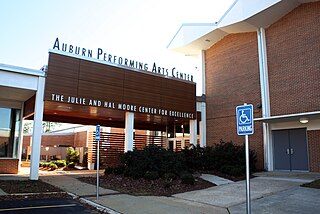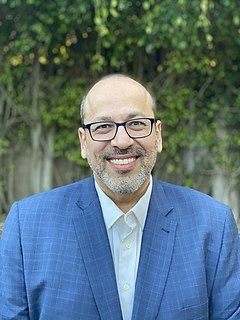Thermal depolymerization (TDP) is the process of converting a polymer into a monomer or a mixture of monomers, by predominantly thermal means. It may be catalysed or un-catalysed and is distinct from other forms of depolymerisation which may rely on the use of chemicals or biological action. This process is associated with an increase in entropy.
The Australian Research Council (ARC) is the primary non-medical research funding agency of the Australian Government, distributing more than A$800 million in grants each year. The Council was established by the Australian Research Council Act 2001, and provides competitive research funding to academics and researchers at Australian universities. Most health and medical research in Australia is funded by the more specialised National Health and Medical Research Council (NHMRC), which operates under a separate budget.

Biodegradable plastics are plastics that can be decomposed by the action of living organisms, usually microbes, into water, carbon dioxide, and biomass. Biodegradable plastics are commonly produced with renewable raw materials, micro-organisms, petrochemicals, or combinations of all three.
The Centre for Ultrahigh bandwidth Devices for Optical Systems is a collaboration of Australian and international researchers in optical science and photonics technology. CUDOS is an Australian Research Council Centre of Excellence and was formally launched in 2003.
The Free Radical Centre or ARC Centre of Excellence for Free Radical Chemistry and Biotechnology was a research centre from 2005 - 2013 that was established in the 2005 Australian Research Council (ARC) grant funding rounds. The centre was administered from the University of Melbourne, and had nodes at six Australian universities: The University of Melbourne, the Victorian Pharmacy College at Monash University, The Heart Research Institute at the University of Sydney, Queensland University of Technology, the University of Wollongong, and the Australian National University in Canberra. The Centre had over 100 researchers working in all areas of free radical chemistry from material science to biology. The centre received an initial grant of $12 million from the ARC in 2005 and a further $9.8 million in 2009. Funding for the centre ended in 2013.

The Faculty of Science and Engineering is a constituent body of Macquarie University. The Faculty offers undergraduate and postgraduate coursework and research degree programs and is home to a number of internationally recognised research centres and also distinguished research staff. The Science Faculty is based on the Eastern half of the Academic Core at Macquarie University and is located near to the Macquarie University Research Park and the Macquarie University Hospital, thus allowing practical links with industry and research. The Faculty is renowned for its research in such areas as chiropractic science, proteomic analysis, climate risk research, environmental science and ecological studies. According to The Good Universities Guide of Australian Universities, graduates within the Faculty of Science receive starting salaries higher than those who graduate in science disciplines at other Australian universities.

Plastics are a wide range of synthetic or semi-synthetic materials that use polymers as a main ingredient. Their plasticity makes it possible for plastics to be moulded, extruded or pressed into solid objects of various shapes. This adaptability, plus a wide range of other properties, such as being lightweight, durable, flexible, and inexpensive to produce, has led to its widespread use. Plastics typically are made through human industrial systems. Most modern plastics are derived from fossil fuel-based chemicals like natural gas or petroleum; however, recent industrial methods use variants made from renewable materials, such as corn or cotton derivatives.

A center of excellence, also called excellence center, is a team, a shared facility or an entity that provides leadership, best practices, research, support or training for a focus area.
Biodegradable additives are additives that enhance the biodegradation of polymers by allowing microorganisms to utilize the carbon within the polymer chain as a source of energy. Biodegradable additives attract microorganisms to the polymer through quorum sensing after biofilm creation on the plastic product. Additives are generally in masterbatch formation that use carrier resins such as polyethylene (PE), polypropylene (PP), polystyrene (PS) or polyethylene terephthalate (PET).

Veena Sahajwalla is an inventor and Professor of Materials Science in the Faculty of Science at UNSW Australia. She is the Director of the UNSW SM@RT Centre for Sustainable Materials Research and Technology and an Australian Research Council Laureate Fellow.
Ulrike Mathesius is a German–Australian plant microbiologist in the Division of Plant Sciences at Australian National University (ANU). She is an Australian Research Council (ARC) Future Fellow at the ANU, National Tertiary Education Union (NTEU) member and Professor at the ANU in plant science, biotechnology and plant-microbe interactions. Her research focuses on root microbe interactions and symbionts to parasites. Mathesius won the 2013 Fenner Medal awarded by the ARC for research in biology for outstanding early-career researchers under the age of 40.
Victoria J. Orphan is a geobiologist at the California Institute of Technology who studies the interactions between marine microorganisms and their environment. As of 2020, she is the Chair for the Center of Environmental Microbial Interactions.
The Australian Laureate Fellowship is an Australian professorial research fellowship awarded by the Australian Research Council. Up to 17 fellows are chosen each year for five-year awards.
The ARC Centre of Excellence for the History of Emotions (CHE) is an Australian research centre that undertakes research in the history of emotions. The Centre was established in 2011 with core funding from the Australian Research Council (ARC), the Australian Government's main agency for allocating research funding to academics and researchers in Australian universities. The Centre of Excellence for the History of Emotions uses historical knowledge from medieval and early modern Europe to understand how societies have understood, experienced, expressed and performed emotions in pre-modern Europe, and how this long history impacts on contemporary Australia.
The ARC Centre of Excellence for Automated Decision-Making and Society (ADM+S) is a multi-institutional, multi-disciplinary research centre based at RMIT University in Melbourne, Australia. The Centre aims to contribute to the knowledge and strategies necessary for responsible, ethical and inclusive automated decision-making (ADM). It was established in 2020 with funding from the Australian Government through the Australian Research Council (ARC) and other partners. The Centre examines the social and technical aspects of ADM, seeing automated systems as the outcomes of interactions between people, machines, data and institutions. It has a particular focus on the domains of news and media, transport and mobility, social services and health.
The Australian Research Council (ARC) Centre of Excellence for Plant Success in Nature and Agriculture is a research centre that combines plant science, mathematics, genetics, agriculture, and law to learn more about what makes plants successful in different environments. The Centre aims to develop new, more effective ways of solving persistent problems in plant science by predicting and improving plant performance in diverse environments. Using quantitative and computational methods the Centre for Plant Success will link gene networks with traits to help address the problems of food security and climate change.

Plastic degradation in marine bacteria describes when certain pelagic bacteria break down polymers and use them as a primary source of carbon for energy. Polymers such as polyethylene(PE), polypropylene (PP), and polyethylene terephthalate (PET) are incredibly useful for their durability and relatively low cost of production, however it is their persistence and difficulty to be properly disposed of that is leading to pollution of the environment and disruption of natural processes. It is estimated that each year there are 9-14 million metric tons of plastic that are entering the ocean due to inefficient solutions for their disposal. The biochemical pathways that allow for certain microbes to break down these polymers into less harmful byproducts has been a topic of study to develop a suitable anti-pollutant.
Nicki Packer FRSC is a Distinguished Professor of Glycoproteomics in the School of Natural Sciences at Macquarie University and Principal Research Leader at Griffith University's Institute for Glycomics. Packer is a Fellow of the Royal Society of Chemistry and in 2021 received the Distinguished Achievement in Proteomic Sciences Award from the Human Proteome Organization. Her research focuses on biological functional of glycoproteins by linking glycomics with proteomics and bioinformatics.

Peter R. Girguis is a professor in the department of Organismic and Evolutionary Biology at Harvard University, where he leads a lab that studies animals and microbes that live in extreme environments. He and his lab also develop novel underwater instruments such as underwater mass spectrometers. Girguis was the founder and Chief Technology Officer of Trophos Energy from 2010 to 2012, which focused on commercializing microbial fuel cell technologies. The company was bought by Teledyne Benthos in 2012. Girguis currently serves as a board member of the Ocean Exploration Trust and the Schmidt Marine Technology Partners.

Seed Health, popularly known as Seed, is an American health and life science company, most known for developing probiotics. Founded in 2015 by Ara Katz and Raja Dhir, Seed was founded to "use bacteria to improve human and environmental health". The company's main product, the probiotic DS-01, is sold direct to consumer, forgoing traditional brick-and-mortar retail.







